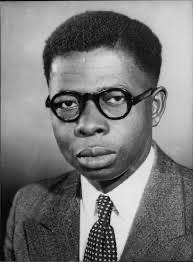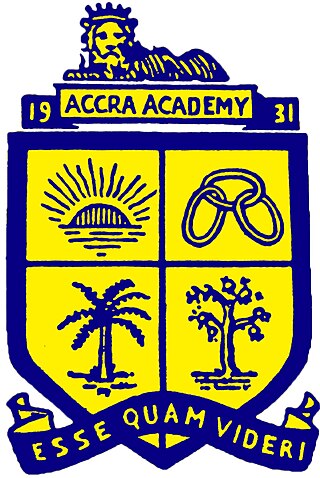
Accra is the capital and largest city of Ghana, located on the southern coast at the Gulf of Guinea, which is part of the Atlantic Ocean. As of 2021 census, the Accra Metropolitan District, 20.4 km2 (7.9 sq mi), had a population of 284,124 inhabitants, and the larger Greater Accra Region, 3,245 km2 (1,253 sq mi), had a population of 5,455,692 inhabitants. In common usage, the name "Accra" often refers to the territory of the Accra Metropolitan District as it existed before 2008, when it covered 199.4 km2 (77.0 sq mi). This territory has since been split into 13 local government districts: 12 independent municipal districts and the reduced Accra Metropolitan District (20.4 km2), which is the only district within the capital to be granted city status. This territory of 199.4 km2 contained 1,782,150 inhabitants at the 2021 census, and serves as the capital of Ghana, while the district under the jurisdiction of the Accra Metropolitan Assembly proper (20.4 km2) is distinguished from the rest of the capital as the "City of Accra".
The Accra riots started on 28 February 1948 in Accra, the capital of the then British colony of the Gold Coast. A protest march by unarmed ex-servicemen who were agitating for their benefits as veterans of World War II, who had fought with the Gold Coast Regiment of the Royal West African Frontier Force, was broken up by police, leaving three leaders of the group dead. They were Sergeant Nii Adjetey, Corporal Patrick Attipoe and Private Odartey Lamptey. who has since been memorialized in Accra.

Joseph Kwame Kyeretwie Boakye Danquah was a Ghanaian politician, scholar, lawyer and statesman. He was a politician in pre- and post-colonial Ghana, which was formerly the Gold Coast, and is credited with giving Ghana its current name.

Ako Adjei, was a Ghanaian statesman, politician, lawyer and journalist. He was a member of the United Gold Coast Convention and one of six leaders who were detained during Ghana's struggle for political independence from Britain, a group famously called The Big Six. He has been recognized as a founding father of Ghana for his active participation in the immediate politics of Ghana's pre-independence era. Adjei became a member of parliament as a Convention People's Party candidate in 1954 and held ministerial offices until 1962 when as Minister for Foreign Affairs he was wrongfully detained for the Kulungugu bomb attack.
The Big Six were six leaders of the United Gold Coast Convention (UGCC), one of the leading political parties in the British colony of the Gold Coast, known after independence as Ghana. They were detained by the colonial authorities in 1948 following disturbances that led to the killing of three World War II veterans. They are pictured on the front of the Ghana cedi notes.

Accra Academy is a boys' secondary school located at Bubuashie near Kaneshie in the Greater Accra Region, Ghana. It admits both boarding and day students. The school was established as a private school in 1931 and gained the status of a Government-Assisted School in 1950. It is the oldest existing secondary school to have been privately founded in the Gold Coast.

Charles Odamtten Easmon or C. O. Easmon, popularly known as Charlie Easmon, was a medical doctor and academic who became the first Ghanaian to formally qualify as a surgeon specialist and the first Dean of the University of Ghana Medical School. Easmon performed the first successful open-heart surgery in Ghana in 1964, and modern scholars credit him as the "Father of Cardiac Surgery in West Africa". Easmon was of Sierra Leone Creole, Ga-Dangme, African-American, Danish, and Irish ancestry and a member of the distinguished Easmon family, a Sierra Leone Creole medical dynasty of African-American descent.
Major General Neville Alexander Odartey-Wellington (1934–1979) was a Ghanaian army officer who was Chief of Army Staff of the Ghana Army from 1978 to 1979. He died in action leading loyal troops against revolting forces during the 4 June 1979 military uprising in Ghana which toppled the Supreme Military Council II government led by Fred Akuffo.
Sir Gerald Hallen Creasy was a British colonial administrator. He served as governor of the Gold Coast and Malta.

Anyako is a town in the Volta Region of Ghana. It is bordered at the south by the Keta Lagoon. The inhabitants of the town mainly belong to the Ewe tribe. Tracing its establishment to a settlement founded by the Anlos during the migration from Notsie in present-day Togo. The town is the birthplace of Ghanaian-American artist El Anatsui. The town has had little to no growth over the past thirty years due to sea erosion which affected commercial activities.
Corporal Patrick Attipoe was a Ghanaian ex-serviceman and veteran of World War II. He was one of the three veterans shot dead by Major Imray while on their way to present a petition to Sir Gerald Creasy who was Governor of Gold Coast at the time. The death of these three ex-servicemen led to the 1948 Accra Riots.
Private Odartey Lamptey was a Ghanaian ex-serviceman and veteran of World War II. He was one of the three veterans shot dead by Major Imray while on their way to present a petition to Sir Gerald Creasy who was Governor of Gold Coast at the time. The death of these three ex-servicemen led to the 1948 Accra Riots.

Theodore Shealtiel Clerk, was an urban planner on the Gold Coast and the first formally trained, professionally certified Ghanaian architect. Attaining a few historic firsts in his lifetime, Theodore Clerk became the chief architect, city planner, designer and developer of Tema which is the metropolis of the Tema Harbour, the largest port in Ghana. The first chief executive officer (CEO) of the Ghanaian parastatal, the Tema Development Corporation as well as a presidential advisor to Ghana's first Head of State, Kwame Nkrumah, T. S. Clerk was a founding member and the first president of the first post-independent, wholly indigenous and self-governing Ghanaian professional body, the Ghana Institute of Architects (GIA), that had its early beginnings in 1963. He was also an Associate of the Royal Institute of British Architects and the Royal Town Planning Institute.

MatildaJohannaClerk was a medical pioneer and a science educator on the Gold Coast and later in Ghana as well as the second Ghanaian woman to become an orthodox medicine-trained physician. The first woman in Ghana and West Africa to attend graduate school and earn a postgraduate diploma, Clerk was also the first Ghanaian woman in any field to be awarded an academic merit scholarship for university education abroad. M. J. Clerk was the fourth West African woman to become a physician after Nigerians, Agnes Yewande Savage (1929), the first West African woman medical doctor and Elizabeth Abimbola Awoliyi (1938) in addition to Susan de Graft-Johnson, née Ofori-Atta (1947), Ghana's first woman physician. These pioneering physicians were all early advocates of maternal health, paediatric care and public health in the sub-region. For a long time after independence in 1957, Clerk and Ofori-Atta were the only two women doctors in Ghana. By breaking the glass ceiling in medicine and other institutional barriers to healthcare delivery, they were an inspiration to a generation of post-colonial Ghanaian and West African female doctors at a time the field was still a male monopoly and when the vast majority of women worldwide had very limited access to biomedicine and higher education. Pundits in the male-dominated medical community in that era described Matilda J. Clerk as "the beacon of emancipation of Ghanaian womanhood."

Gottlieb Ababio Adom was a Ghanaian educator, journalist, editor and Presbyterian minister who served as the Editor of the Christian Messenger from 1966 to 1970. The Christian Messenger, established in 1883 by the Basel Mission, is the primary newspaper of the Presbyterian Church of Ghana.
Gold Coast Euro-Africans were a historical demographic based in coastal urban settlements in colonial Ghana, that arose from unions between European men and African women from the late 15th century – the decade between 1471 and 1482, until the mid-20th century, circa 1957, when Ghana attained its independence. In this period, different geographic areas of the Gold Coast were politically controlled at various times by the Portuguese, Germans, Swedes, Danes, Dutch and the British. There are also records of merchants of other European nationalities such as the Spaniards, French, Italians and Irish, operating along the coast, in addition to American sailors and traders from New York, Massachusetts and Rhode Island. Euro-Africans were influential in intellectual, technocratic, artisanal, commercial and public life in general, actively participating in multiple fields of scholarly and civic importance. Scholars have referred to this Euro-African population of the Gold Coast as "mulattos", "mulatofoi" and "owulai" among other descriptions. The term, owula conveys contemporary notions of "gentlemanliness, learning and urbanity" or "a salaried big man" in the Ga language. The cross-cultural interactions between Europeans and Africans were mercantile-driven and an avenue to boost social capital for economic and political gain i.e. "wealth and power." The growth and development of Christianity during the colonial period also instituted motifs of modernity vis-à-vis Euro-African identity. This model created a spectrum of practices, ranging from a full celebration of native African customs to a total embrace and acculturation of European culture.
Dr. Kofi George Konuah was a Ghanaian educationist and statesman who served as Chairman of the Public Services Commission of Ghana from 1962 to 1970 and Chairman of the Audit Service Board from 1970 to 1974. As an educationist, he is known for being a co-founder and the first principal of Accra Academy, an all-boys secondary school located in Accra.
Nii Kwabena Bonnie III, also known as Kwamla Theodore Taylor, was a Ghanaian (Ga) traditional ruler in Gold Coast, a British colony in West Africa, in 1947. He was a chief of Osu Alata Mantse and Oyokohene of Techiman.
The Association of West African Merchants (AWAM) was a trade association that sold European goods in the Gold Coast. It was originally formed in 1916 for European merchants to discuss problems relating to West African trade. The Gold Coast branch was formed during the late Second World War as suggested by the government to assist in the administration of the war-time economic controls. The acronym AWAM over the years became used to mean the manipulation of terms of trade to disadvantage customers in favour of traders. In the local parlance, it was synonymous to "Kuluulu".
The Watson Commission was a commission of enquiry appointed by Sir Gerald Hallen Creasy, governor of the Gold Coast (1948–1949) to investigate the disturbances that occurred in the Gold Coast in February and March 1948. The commission was chaired by Aiken Watson.









